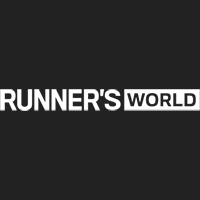Pop Quiz: You just went for a run. How many calories did you blast? Chances are your guess outpaces reality, to the tune of, say, a Frappuccino.
Overestimating calorie burn is the big daddy of runners' weight-loss mistakes, says Lisa Ellis, M.S., R.D., a nutritionist in Westchester, New York. But it's not the only misstep. Sneaky slip ups can derail the weight-loss efforts of even health-savvy runners. Here's how to avoid eight common mistakes. (While you're at it, learn the Top Nutrition Myths to avoid, too.)
More: Where It Hurts: Lower Leg
Miscounting Calories
It's true that running eats up more calories than nearly any other activity: The average man burns 124 calories per mile and the average woman burns 105, which means a 3-miler nets you a 315- to 372-calorie deficit. But you can easily overspend your calorie deficit with something as simple as a flavored latte and a chocolate chip cookie.
Correction: Get a better estimate of your calorie burn with an online calculator or with a GPS watch that allows you to input your height, weight and other stats.
Calculate Your Daily Calorie Burn
If you're prone to overindulging post run, avoid blowing your calorie deficit by finding a couple "reward" foods with easily controllable portions, like bite-size cookies or single-serving chips.
Skimping on Fat
Feeling virtuous with your dry toast, naked salads and splash of watery skim milk in your coffee? Not so fast: Your body needs fat to absorb vitamins like A, D, E and K, and to regulate hunger; fats are digested more slowly than carbs and protein, keeping hunger at bay longer. It's also believed that fat helps your body sense the appetite-regulating hormones ghrelin and leptin, says Ellis. A no-fat or very low-fat diet leaves those hormones out of whack.
More: Healthy Fats: How Much Should You Eat?
Correction: Fat should make up 20 to 30 percent of your daily calories. But avoid trans fats, from processed foods, and limit saturated fats found in meat and dairy. Rely on mono- and polyunsaturated fats, which are found in olive oil, nuts, seeds, avocados and fish. These fats protect your heart and promote satiety. A recent study found that even the aroma of some fats, particularly olive oil, may prompt the release of satiety-inducing hormones.
10 Tips for Weight Loss That Lasts
Running on Empty
You may have heard this one: Hit the road without breakfast and your body will burn fat. But it doesn't work the way you'd hope (find out what really happens when you run on empty). Rather than seeking out fat immediately, your muscles first use carbs that have been stored in your muscles as glycogen, says Rachel Berman, R.D. When those stored carbs run out and your body starts to burn fat, your energy plummets, forcing you to slow down and burn fewer calories than if you had fueled up properly.
Correction: If you're heading out for 30 minutes or less on an easy run, you can skip a pre-run snack, since you probably have enough glycogen to power you. But if you run longer or harder, you should have a 100- to 200-calorie snack about an hour before your run. Choose carbs and a bit of protein, such as a banana with peanut butter, and drink water to hydrate.
More: What to Eat Before a Run


